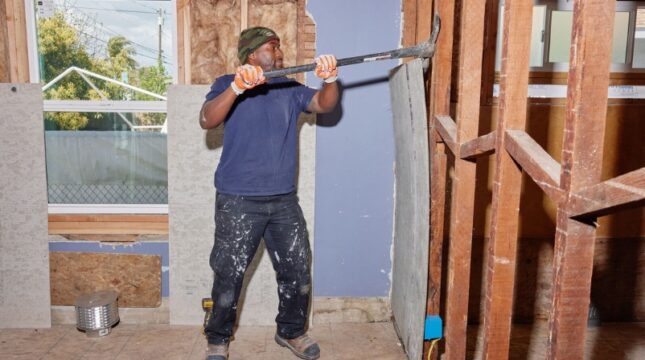How to get a contractor license in Minnesota
Getting an MN residential building contractor or remodeler license is pretty straightforward, but there are some things you need to do before submitting your application.
To get started, you have to register your business with the state and decide who will serve as the “qualifying person” (QP) for your business. The qualifying person must pass the Minnesota general contractor test before applying. They must also meet the continuing education requirements to keep the license active.
If you’re a sole proprietor, you’ll serve as the qualifying person. If not, you can designate someone else to be the QP.
Minnesota general contractor license requirements
Once you register your business and the qualifying person passes the exam, you can submit your license application to the Minnesota Department of Labor and Industry (DLI). To help prevent delays, here’s a summary of the paperwork you’ll need to provide with your application.
Business information
- A copy of your certificate of incorporation or a screenshot of your business’s information from the Secretary of State’s website
- You’ll need a copy of your assumed name certificate if you operate under a name different from the business’s legal name (i.e., Jones and Son Plumbing vs. Jones LLC).
- Relevant ownership information (aka owner, partner and officer disclosures)
Insurance information
Fees
- Application fee
- Contractor Recovery Fund fee. This fee replaces the bonding requirement and is based on your gross annual receipts for the most recent fiscal year.
Additional requirements
- Criminal background check form
- Designated qualifying person form
Minnesota general contractor license renewal
Residential building contractor and remodeler licenses are good for two years and expire on March 31 of the second year. If you want to renew your license, your business’s QP must complete 14 hours of DLI-approved continuing education every two years. At least one hour must be about the Energy Code, and one hour must be about business management strategies.
Renewal license fees are based on gross receipts and may range from $505 to $705.
Exceptions to Minnesota’s licensing requirements
While most residential building contractors need a license to work in the state of Minnesota, there are a few exceptions. You don’t need a license if:
- You’re an employee of a licensed contractor or a subcontractor who doesn’t work directly with the homeowner.
- Your work is limited to buildings with more than four units.
- You’re working on a property you own and don’t plan to sell.
- You’re an architect or engineer, and you’re not doing work outside the scope of your profession.
- You’re a residential building contractor with gross receipts of less than $15,000 a year and a certificate of exemption.
- You only perform work in one skill area and are not a roofer. Roofers need a license.
Minnesota residential contractor insurance requirements
Having the right business insurance coverage in Minnesota can help protect your business from financial losses if something goes wrong on one of your jobs. And there are a few types of insurance that general contractors in this state must maintain.
General Liability
General liability insurance can help protect your business if you or one of your employees damages someone’s property or injures a person who isn’t an employee.
To work as a residential building contractor or remodeler in Minnesota, you need to have liability insurance coverage of at least $100,000 per occurrence and $300,000 aggregate, as well as property damage insurance coverage of at least $25,000.
Learn more about general liability for contractors.
Workers’ Compensation
Most Minnesota contractors with employees must have workers’ compensation insurance, which can help cover medical bills and lost wages for employees who get hurt or sick on the job. If you’re exempt from the workers’ compensation requirement, you must explain why.
Even if you don’t have employees, you may want to consider purchasing coverage. Under Minnesota law, subcontractors are sometimes considered employees.
If you hire a subcontractor who doesn’t have workers’ compensation insurance and they or one of their employees gets hurt on the job, you could still be held liable for their injuries by law.
Learn more about Workers’ Comp for construction workers.
Commercial Auto
Every vehicle on the road in Minnesota must have insurance coverage. Personal auto insurance doesn’t usually cover work-related activities, so commercial auto can help cover accident-related costs, such as towing, repairs and rental reimbursement.
In MN, the minimum required coverage is $30,000 (injuries to one person — bodily injury), $60,000 (per accident) and $10,000 (physical damage to other vehicles or property).
Unemployment insurance
As a residential contractor in Minnesota, you might need unemployment insurance, which provides financial assistance to employees who lose their job through no fault of their own. If your business is exempt from carrying this type of insurance, you need to provide an explanation of why you’re exempt.
How NEXT protects your Minnesota general contractor business
NEXT specializes in creating customized insurance packages for general contractors like you. Whether you’re a one-person shop or have a team of employees and subcontractors working for you, we have coverage designed to fit your business’s unique needs.
The policies we offer include general liability, workers’ compensation, professional liability, commercial auto and commercial property insurance. You can mix and match them to meet your needs, so you’re never over or underinsured.
Our online application process makes it easy to get a free quote, see your policy options and choose the coverage you need in less than 10 minutes.
Our U.S.-based, licensed insurance advisors are ready to help if you have any questions during the application process.
Get your free instant quote today.
If your work’s not limited to Minnesota, check out our general contractor license requirements for every state.
This information has been provided as a service. It is correct and up-to-date to the best of our knowledge; however, it is in no way intended to offer legal advice and you must always consult with local authorities before you make any business decisions. Regulations and requirements may change at any time.





